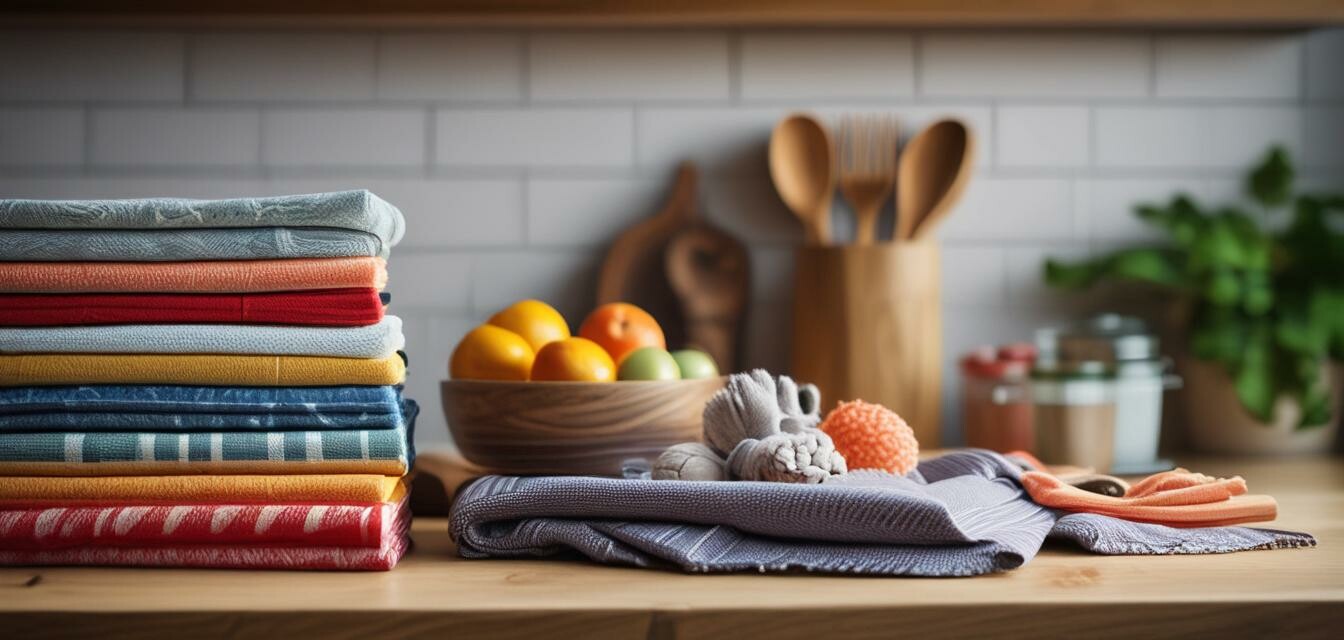
Finding Quality Eco-Friendly Kitchen Textiles
Key Takeaways
- Prioritize materials: Look for organic cotton, linen, and hemp.
- Check for certifications: Choose products with certifications like GOTS or OEKO-TEX.
- Sustainability over style: Select textiles that maintain functionality while being eco-friendly.
- Care for your purchases: Understand washing and care instructions to extend the life of your kitchenware.
When it comes to creating an eco-friendly kitchen, one often overlooked area is the choice of kitchen textiles. Whether you’re looking for towels, aprons, or tablecloths, finding quality eco-friendly options is essential. This guide will cover everything you need to know!
Why choose eco-friendly kitchen textiles?
Eco-friendly kitchen textiles not only contribute to a more sustainable lifestyle but also enhance the overall aesthetics of your kitchen. By choosing products made from natural and organic materials, you reduce the amount of harmful chemicals in your home, promote better hygiene, and make choices that benefit the planet.
Types of Eco-Friendly Kitchen Textiles
Let’s explore some common types of kitchen textiles that provide both functionality and sustainability:
- Towels: Essential for drying dishes and hands, look for those made from organic cotton.
- Aprons: A good apron protects your clothing while cooking. Consider options made from hemp or sustainably sourced cotton.
- Tablecloths: Elevate your dining experience with linen or organic cotton tablecloths that are both beautiful and eco-friendly.
- Dishcloths: Opt for biodegradable options made from natural fibers that are efficient and compostable at the end of their life.
Materials to Look For
Not all textiles are created equal. Here are some sustainable materials to consider when purchasing eco-friendly kitchen textiles:
| Material | Benefits | Care Instructions |
|---|---|---|
| Organic Cotton | Soft, durable, biodegradable | Machine wash cold, tumble dry low |
| Linen | Highly absorbent, long-lasting | Machine wash, air dry to avoid shrinkage |
| Hemp | Strong, mold-resistant, sustainable | Hand wash preferred, lay flat to dry |
| Bamboo | Soft, eco-friendly, naturally antibacterial | Wash cold, avoid bleach, air dry |
How to Identify Quality Eco-Friendly Textiles
When shopping for eco-friendly kitchen textiles, consider these tips to ensure you're getting quality items:
Tips for choosing quality textiles
- Check for certifications such as GOTS (Global Organic Textile Standard) or OEKO-TEX.
- Look for textile weight: Thicker fabrics generally indicate better quality.
- Read customer reviews to gauge durability and performance.
- Pay attention to the stitching and hems; quality sewing is essential for longevity.
Care and Maintenance for Longevity
To ensure your eco-friendly textiles last longer, follow these care tips:
- Wash with gentle detergents free from harsh chemicals.
- Air dry whenever possible to preserve fabric strength.
- Avoid using bleach or softeners which can compromise the textiles' integrity.
Where to Buy Eco-Friendly Kitchen Textiles
Finding the right suppliers for sustainable kitchen textiles is crucial. Here are some places to consider:
- Local farmer’s markets for handmade textiles.
- Online retailers that specialize in sustainable products.
- Eco-friendly stores that have a focus on kitchenware.
- Thrift stores for vintage textiles that promote reusability.
Conclusion
In your journey to an eco-friendly kitchen, quality kitchen textiles play a significant role. By choosing materials that are sustainable and maintaining them properly, you not only enhance your cooking experience but also contribute to the health of our planet. For more insights on eco-friendly options, explore our Bamboo Kitchenware and Compostable Kitchen Tools categories.
Pros
- Environmentally friendly materials promote sustainability.
- Durable and long-lasting if cared for properly.
- Visually appealing design that enhances kitchen aesthetics.
Cons
- Sometimes may be more expensive than conventional textiles.
- Care instructions might require extra attention.


